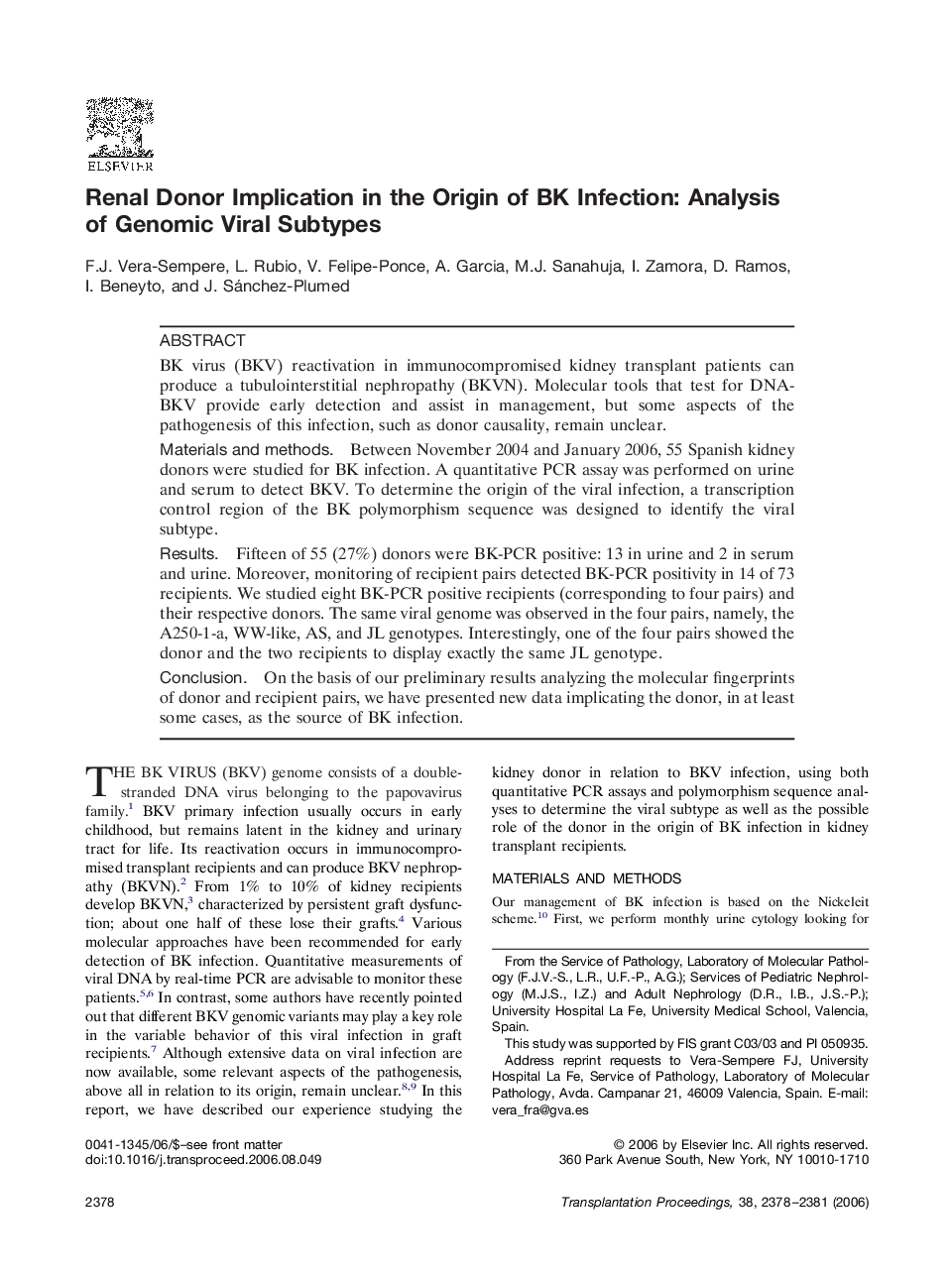| Article ID | Journal | Published Year | Pages | File Type |
|---|---|---|---|---|
| 4261488 | Transplantation Proceedings | 2006 | 4 Pages |
BK virus (BKV) reactivation in immunocompromised kidney transplant patients can produce a tubulointerstitial nephropathy (BKVN). Molecular tools that test for DNA-BKV provide early detection and assist in management, but some aspects of the pathogenesis of this infection, such as donor causality, remain unclear.Materials and methodsBetween November 2004 and January 2006, 55 Spanish kidney donors were studied for BK infection. A quantitative PCR assay was performed on urine and serum to detect BKV. To determine the origin of the viral infection, a transcription control region of the BK polymorphism sequence was designed to identify the viral subtype.ResultsFifteen of 55 (27%) donors were BK-PCR positive: 13 in urine and 2 in serum and urine. Moreover, monitoring of recipient pairs detected BK-PCR positivity in 14 of 73 recipients. We studied eight BK-PCR positive recipients (corresponding to four pairs) and their respective donors. The same viral genome was observed in the four pairs, namely, the A250-1-a, WW-like, AS, and JL genotypes. Interestingly, one of the four pairs showed the donor and the two recipients to display exactly the same JL genotype.ConclusionOn the basis of our preliminary results analyzing the molecular fingerprints of donor and recipient pairs, we have presented new data implicating the donor, in at least some cases, as the source of BK infection.
